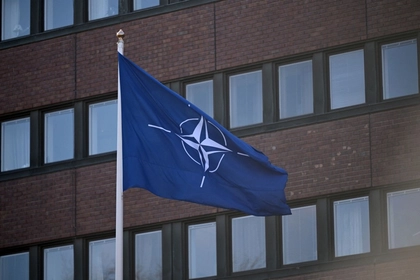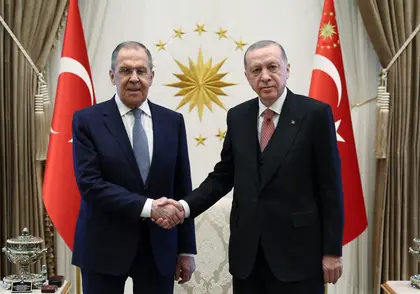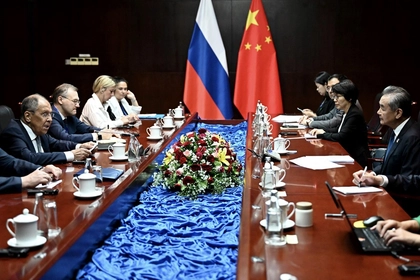Russia Foreign Minister Sergei Lavrov heads Friday to Turkey which has sought to revive moribund Russia-Ukraine peace talks and ways to ensure safe navigation in the Black Sea.
Lavrov will attend part of the annual diplomatic forum in the Mediterranean resort of Antalya where he is to meet with President Recep Tayyip Erdogan and Foreign Minister Hakan Fidan.
JOIN US ON TELEGRAM
Follow our coverage of the war on the @Kyivpost_official.
The Russia-Ukraine war will be a key talking point at the forum that runs from Friday to Sunday, though Russia's top diplomat is to leave again Saturday.
Since the Russian invasion of Ukraine in February 2022, Ankara has carefully maintained ties with both sides.
"Turkey, along with Hungary, remains one of the last countries in the (NATO) Atlantic Alliance to maintain dialogue with Moscow," said Sinan Ulgen, director of the Istanbul-based Edam think tank.
"In a geopolitical context modified by the war, Turkey is careful to keep this role for the future, hoping to capitalise on it during possible peace talks," he added.
Erdogan said Wednesday that Turkey wants to revive a 2022 peace effort when top negotiators from the rivals met in Istanbul.
"We are ready to re-establish the negotiating table to build peace like we did in Istanbul previously," Erdogan said in a video message played at a summit of southeast European leaders in Tirana this week. Ukraine's President Volodymyr Zelensky was present.
The Turkish leader also called for a a new secure mechanism for Black Sea shipping.

Russian Drone Debris Found in Romania, NATO Says No Sign of Intentional Attack
"We need an arrangement that guarantees the safe navigation of commercial vessels in the Black Sea," he said.
"To this end, we are continuing our contacts to receive commitments in terms of security," he added without providing details.
- Grain deal -
Turkey, with the United Nations, was heavily involved in the establishment of a secure corridor to ship Ukrainian grain and agricultural products under a 2022 deal. It was abandoned last year after Russia refused to renew it.
The deal, often dubbed the Black Sea Grain Initiative, enabled the export of nearly 33 million tonnes of Ukrainian grain, according to UN figures.
After Russia's refusal, Ukraine started using an alternative route for its grain along the coasts of Bulgaria and Romania and through the Bosphorus straits. Bulgaria, Romania and Turkey, all NATO members, signed an agreement in January to combat mines in the Black Sea.
Turkey, which is highly dependent on Russia for energy supplies, has shied away from joining sanctions against Moscow and is regularly accused by the West of circumventing them. Sixteen Turkish entities were named in new US sanctions announced last week.
"Given the significant increase in trade between Turkey and Russia ... there are in fact investigations into an evasion of Western sanctions imposed on Russia," said Marc Pierini, a senior researcher at the Carnegie Europe think tank.
Pierini also pointed to Russian investment in Turkey's energy sector, including a nuclear power plant, discounts on the price of Russian gas, payments in the ruble currency and the promotion of a gas hub.
Russian nuclear giant Rosatom has also announced a second power plant in Turkey and its interest in a third.
"Turkey is trying to pursue a prudent policy, continuing its commercial relations with Russia while ensuring not to cross a red line which would expose it to retaliation from the West," Ulgen said.
The Antalya forum, Turkey's main annual diplomatic gathering, brings together heads of state and government, ministers, diplomats, businessmen and researchers each year in the resort, that is also popular with Russian tourists.
Lavrov went to the forum in 2022, two weeks after the start of his country's invasion. He met Ukrainian Foreign Minister Dmytro Kuleba in the the first high-level encounter between the two warring countries.
You can also highlight the text and press Ctrl + Enter






